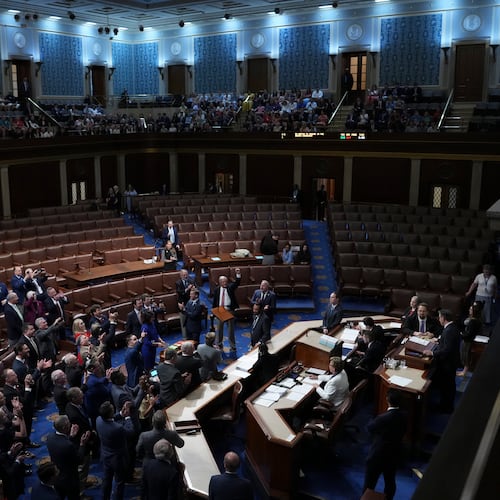The arts have always danced through a delicate, dual performance that brings us the concerts and plays that lift our collective spirits while fulfilling the back-office functions that pay the bills and keep stages lit.
That’s true for vest-pocket theater companies working with shoestring budgets all the way up to the Woodruff Arts Center, which oversees an Atlanta-sized chunk of the arts biz. Never has the weighing of artistic goals against fiscal performance been more true than today, with a Great Recession continuing its unwanted performance on a global stage, hooks and audience boos notwithstanding.
That’s a tough dance these days. The Georgia Council for the Arts awarded $4.02 million in funding in fiscal 2009. For fiscal 2010, that amount is $2.78 million.
The Woodruff’s 2008-09 annual corporate campaign fell about 4 percent short of its $9 million goal. Given the severity of this recession, that’s a showing worthy of applause.
Also deserving of bravos was the Woodruff’s decision this summer to place spreadsheets ahead of sheet music and drop the $300 million symphony hall proposed for a 14th Street site in Midtown.
After halting fund-raising at $114 million in 2007 to build this winged Parthenon of high culture and making known its need for public funding, the Woodruff wisely turned to the drawing board — in this case, to its 25-year master plan. Smart strategic planning is a key tenet of successful businesses and not-for-profits alike.
Moving away from famed architect Santiago Calatrava’s soaring vision for the new symphony hall may have caused groans in architectural quarters, but it was the right course for the Woodruff.
Looking anew at the existing Arts Center campus as a future home for a new symphony venue shows the Woodruff is trying to be a prudent steward of its donors’ dollars. Patrons should keep that in mind as they ponder future gifts.
And, lest a chorus of disappointment ring through the rows of Atlanta Symphony Orchestra fans, reusing the Arts Center site need not resign us to the ranks of artistic also-rans.
We’re confident a new, or revamped, facility can arise there that provides both world-class acoustics and an auditorium that does justice to the majesty of classical music.
The Woodruff complex, as a prominent center of gravity for what CEO Joseph Bankoff calls the “ecosystem” of the arts, is and should be much more than a 1,800-seat concert hall. The campus has the potential to be a true heart of the arts community and a magnet for the creative energy that inspires us and fuels innovation even in the business world. The Woodruff’s plans for a “Village of the Arts” that’s humming with activity day and night deserves this community’s support.
A robust center, though important and necessary, is not the whole, however. The metro area benefits from a number of other venues that bring the arts home, both inside and outside of the Perimeter.
Given suburbanites’ justified reticence about negotiating Atlanta’s traffic and less-quantifiable, though no less real, concerns about crime and security, it’s not surprising that performance centers have emerged well away from Midtown. Taking the arts to where the people are is a good thing as a whole. In a region of 5 million people, there should be more than adequate room — and hopefully a commensurate level of community financial support — for arts venues large and small across the area.
Arts supporters are right to observe that a Cobb Energy Centre or the ASO’s Verizon Wireless Amphitheatre in Alpharetta can create a sense of pride and place in communities. “What a performing arts center really does is validate a community,” said Michael Taormina, managing director of the Cobb Centre.
And paying fans, whether of classical composer Dmitri Shostakovich’s works or of homegrown favorite Sugarland, contribute to the region’s economic development. A study by Americans for the Arts says a typical performance attendee drops $27.79 per person on event night, in addition to the cost of their ticket. Given that places such as Cobb Energy Centre draw from a regional market that can extend for a long drive beyond the metro area, that’s a nice fiscal plus for Atlanta.
In a less-quantifiable sense, a robust arts community can be a classy coda to the sales pitches made by economic development officials to companies seeking a new home. “We need to have something for the soul,” says Susan Weiner, executive director of the Georgia Council for the Arts. “We have to have something that moves us in a bigger way.”
If having a plethora of artistic options on tap can help sell newcomers on Atlanta, then let the band play on. In this time of recessionary retrenchment, the folks selling Atlanta’s many benefits need all the help they can get.
Andre Jackson, for the Editorial Board
Keep Reading
The Latest
Featured


